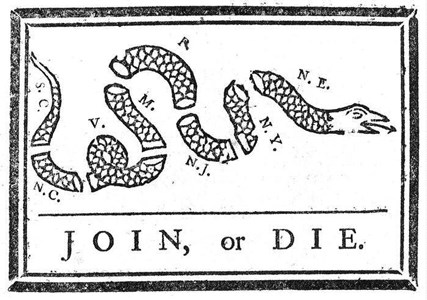
The Pennsylvania Gazette, May 9, 1754 Library of Congress Arguing Around the Slave Trade
"This widening of opinions has a threatening aspect. If we do not agree on middle … ground [on the slave trade] we should lose two states …fly into a variety of shapes and directions, and most probably into several confederations and not without bloodshed.
-Oliver Ellsworth in Madison's Notes on the Convention
Pressure was building in the debates to resolve two controversial issues -- the future of the nation's slave trade and navigation regulations. Article VII, section 4, of the Detail committee report tied these two elements of the nation's economy together by setting taxes on all imports except slaves. Debate continued on Luther Martin's (MD) move to modify the article and section to include a tax on imported slaves. Pinckney stated South Carolina and Georgia could not "do without slaves." The Convention promptly formed a committee to consider these Article 7 clauses again and to hammer out a compromise to save the Constitution. Few actions of the Convention are so difficult for us to understand and accept as permitting the continuation of the slave trade until at least 1808. But in 1787, this clause of the Constitution allowed for a critical compromise on the heated matter of federal regulation of navigation. Northern states tended to favor central regulation of commerce as a means to assure a steady national treasury while distributing the trade more evenly among the major ports. Southern states, on the other hand, had far less commerce, relying far more on slave- powered plantation agriculture. They, therefore, tended not to favor regulation of commerce and particularly resisted any effort to restrict the importation of slaves. Gouverneur Morris predicted, the two positions "may form a bargain among the Northern and Southern States." And so they did. As proposed by the committee and accepted as part of the Constitution's Articles 1, Section 9, slaves would be imported into this country for another twenty years. In exchange as provided in Section 10, the nation got a navigation clause that provided federal control of foreign trade.
NEXT >>>
|
Last updated: February 26, 2015
